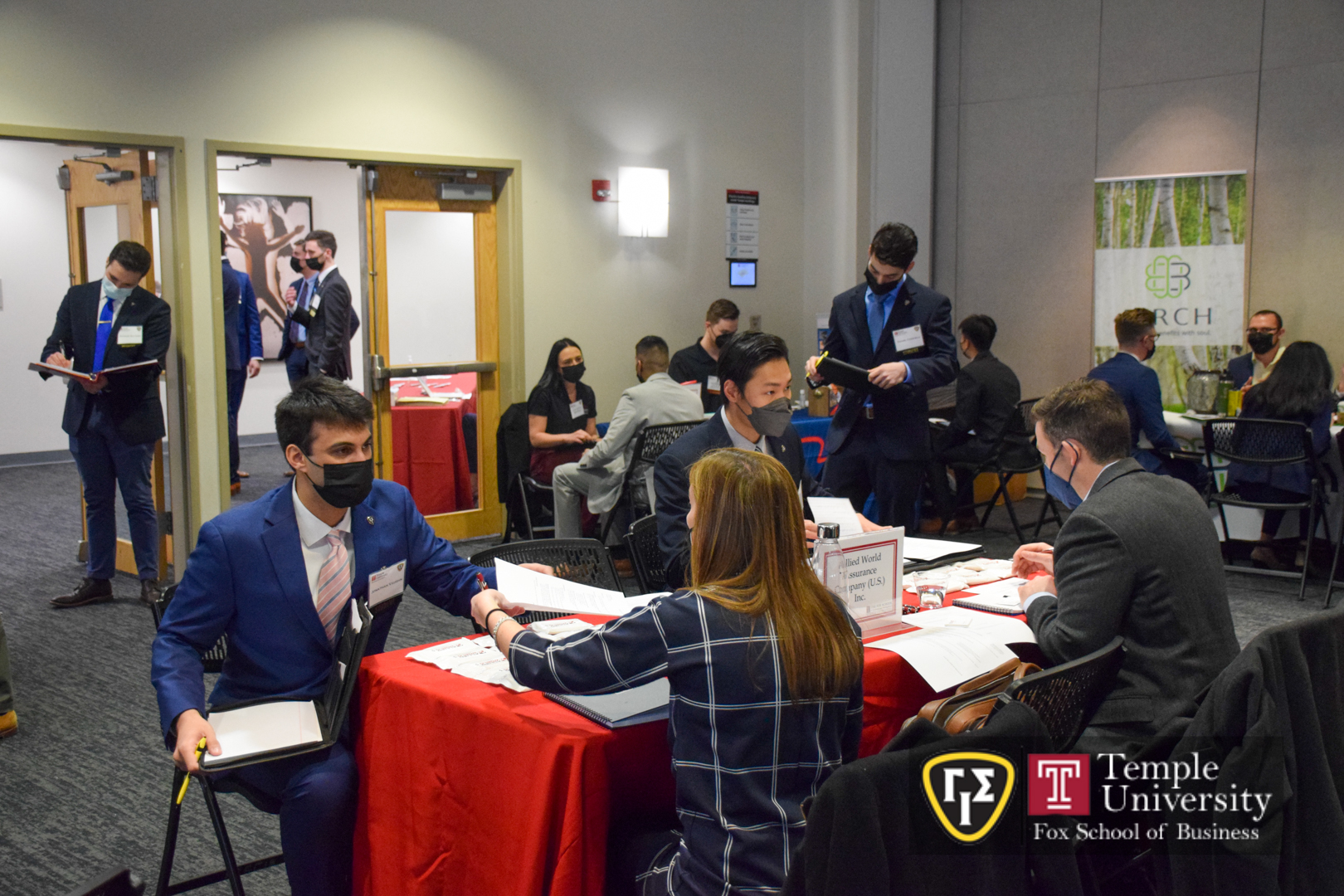Practical experience. Personalized professional development. Excellent post-graduation placements. Leading researchers. The Fox School’s actuarial science program offers all that and more.
Those are just some of the reasons why the Society of Actuaries recently redesignated the Fox School as a Center for Actuarial Excellence (CAE). Now, the Fox School program is one of only 19 designated CAEs in the U.S. and 35 in the world, according to the Society of Actuaries.
Krupa Viswanathan, academic director of the Actuarial Science program and associate professor in the Department of Risk, Actuarial Science and Legal Studies, says that she believes the program is unique not only because of its position within a business school but also due to its focus on experiential learning.
“It’s the depth of our curriculum and the way that we teach the material that is effective,” Viswanathan says. “We are getting the students prepared for actuarial exams but also helping them understand how they can apply this material to what they’ll be doing on the job. It’s not just the math and formulas.”
For example, one of the projects students work on focuses on retirement—a concept far in the future for most 20-year-olds, but very relevant for aspiring actuaries.
“Students think about a hypothetical client who has a certain job and a family,” Viswanathan explains. “They think about their life cycle and how much they might want to have as retirement income. What kind of expenses do they have along the way? How can they plan out how much they should be investing? What about reasonable interest rates and projecting cash flows?”
Their practical lessons extend beyond the classroom. Recently, two groups of Fox students won first place in two different competitions: the Annual Travelers Actuarial Case Competition and the Captive Insurance Companies Association (CICA) Essay Contest.
Students also get hands-on experience by participating in Gamma Iota Sigma, Sigma Chapter, the student professional organization (SPO) for the insurance industry.
“Having such a strong student organization like Gamma means there are speakers here every week to talk about current events in the industry. There are high-level professionals working in different areas of risk management, insurance, actuarial science, and financial services. Students get to meet young alumni and share tips on how to pass exams,” says Viswanathan. “It exposes the students to what’s going on in the real world.”
Viswanathan credits Professor RB Drennan, former chair and professor of risk, insurance and healthcare management, with setting a foundation for such a strong student organization.
“He instilled this culture of professional development that is infused in the risk management and insurance discipline.”
The program also hosts its own placement program, with career receptions in the fall and full-time job and internship fairs in the spring. Viswanathan remarks that having these fairs run by the SPO and the department really keeps the faculty and students connected with employers. Jeffrey Zheng, an actuarial science faculty member and a faculty advisor for Gamma, is instrumental in creating the rich professional development opportunities that the students receive each semester.
Shelby Green, a senior actuarial science major and vice president of Gamma Iota Sigma, agrees that Gamma offers a wonderful community for Fox students. She shares some of her favorite parts about her role in the SPO, especially as it relates to career receptions.
 Shelby Green
Shelby Green
“I love being able to help students,” says Green. “During this past intern career reception, I was able to calm students’ nerves, given that this was their first time interviewing in person. I had a few students who came back to me after every interview for a pep talk and a breather. I am grateful that students think of me as a resource and am proud to see all that my peers have accomplished!”
Among the faculty in actuarial science are leading researchers in theory and practice who advance the discipline. For example, Assistant Professor Thorsten Moenig is a leading researcher in variable annuities, an investment-based insurance product. Tianxiang (Tim) Shi, also an assistant professor, is a leading researcher in risk theory. Viswanathan herself studies the intersection of insurance and finance. All the faculty bring experience- and research-backed insights into the classroom for the benefit of the students.
The CAE designation is also due to the students’ success on the actuarial exams. Viswanathan explains that the program encourages students to pass at least two exams by the time they graduate.
“After they graduate, when they’re working, they’ll still have a few years of taking these professional exams,” says Viswanathan. “But unlike a college course where you have homework due, nobody’s necessarily monitoring that you’re practicing problems. A successful student needs to have a lot of self-motivation.”
But Viswanathan did want students to know that failure isn’t the end of the road. “It’s very rare for somebody to go through all of the exams without having failed at least once. The exam process also involves figuring out what is the most effective way for you to study.”
So with an excellent program, what else does a student need?
Viswanathan offers some last advice: “To be successful as an actuary, you need to be tenacious and enjoy problem-solving.”

